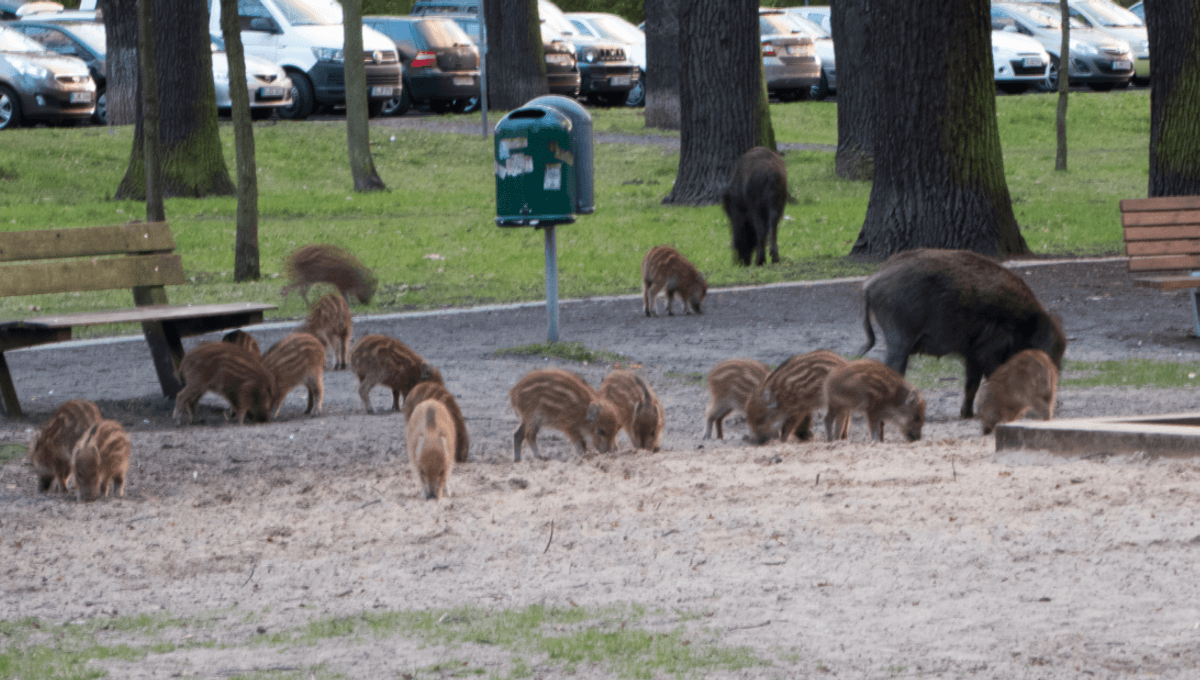
From Greenland sharks’ eyes to marine sediments, we’ve witnessed nuclear fallout crop up in all kinds of unusual ways, and now we can add boars in Germany and Austria to the list. Here, these wild, tusked pigs are free to roam, and while they may look like fair game, the levels of radioactive cesium in their bodies make them unsafe to eat.
Chernobyl had been blamed for the contamination, but now new research has pinpointed an alternative source: nuclear weapons tests. According to the authors, nuclear weapon fallout from tests being conducted 60 to 80 years ago was likely a significant contributor to the wild boars’ radioactive state that persists to this day.
In a nuclear blast, huge amounts of energy is released by breaking apart certain kinds of atoms, including radioactive cesium. This means it’s a common by-product of intentional blasts and nuclear accidents, leaking into the environment and posing a health risk to humans and wild animals.
Chernobyl was a significant contributor of cesium-137 when the reactor core exploded back in 1986. Cesium-137 is particularly tricky as a radioactive contaminant as it’s known for its longevity, lasting for many years. However, over time we’ve observed the levels of radioactivity dropping off in most wild animals affected by the disaster.
Radioactive boars in Germany and Austria tell a different story. Their levels of cesium haven’t changed in the way scientists expected, leading researchers to wonder if Chernobyl was the sole origin of their contamination.
Working with hunters, they gathered samples of wild boar meat from animals living in Southern Germany. These were then tested to see how much cesium-137 they contained using a gamma-ray detector. They then looked at how much cesium-135 the meat contained with the aid of a sophisticated mass spectrometer.
The results showed that 88 percent of the 48 meat samples tested weren’t safe for consumption according to German regulatory limits, owing to the volume of radioactive cesium they contained. They were also able to deduce that weapons testing contributed between 10 to 68 percent of the contamination, and in some samples was enough to exceed regulatory limits without taking into account the cesium contamination from Chernobyl. It appears that mid-century nuclear weapons tests have, until now, been a greatly underappreciated source of radioactive contamination for wild animals.
In case you’re wondering, why boars? These animals are particularly affected because of their penchant for underground truffles. These expensive delicacies are unfortunately good at soaking up environmental radioactive contamination, and the evidence goes to show that for the animals feeding on them, the effects can endure for decades following the initial incident.
In the context of the potential nuclear threat posed by Russia’s invasion of Ukraine, and the fact that 56 nuclear reactors are currently under construction across the world, it’s a pertinent reminder of how the use and release of radioactive materials can affect public safety.
“Once released, radiocesium will remain in the environment for generations and impact food safety immediately and, as shown in our study, for decades,” concluded the authors. “Any additional releases will cause further accumulation and mixing with older sources, making it necessary to understand the underlying mechanisms of the biogeochemical cycling of radiocesium.”
The study is published in Environmental Science And Technology.
Source Link: Radioactive Boars Aren’t Safe To Eat, But Chernobyl’s Not Solely To Blame